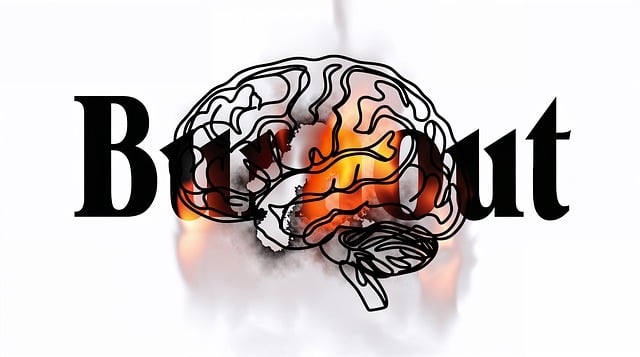In today's fast-paced world, managing mental wellness is crucial, especially for couples in Arvada facing communication issues linked to health challenges. Self-assessment tools play a vital role by enabling early identification of problems and encouraging proactive coping skills development. The Arvada Model offers a unique holistic approach, addressing specific communication issues and integrating therapeutic techniques. Effective assessment tools should go beyond basic questionnaires, incorporating interactive formats tailored to cultural and socioeconomic barriers. Integrating therapy techniques in digital platforms can enhance mental wellness, including Arvada Couples Communication Issues Therapy, through personalized support, mindfulness exercises, and self-care routines. Continuous improvement based on user feedback and research ensures these tools remain relevant and effective for promoting healthier relationships and long-term well-being.
Mental wellness self-assessment tools have emerged as powerful resources, offering individuals and couples a proactive approach to managing their mental health. This article delves into the development of such tools, highlighting the crucial need for accessible self-assessment in mental health care. We explore the Arvada Model, focusing on key areas like communication issues within couples. Additionally, we discuss integrating therapeutic techniques, measuring success, and continuous improvement strategies for these innovative platforms, with a specific emphasis on addressing Arvada Couples Communication Issues through therapy.
- Understanding the Need for Self-Assessment Tools in Mental Health
- Identifying Key Areas of Focus: The Arvada Model
- Designing Effective Assessment Tools for Couples Communication Issues
- Integrating Therapy Techniques into Self-Assessment Platforms
- Measuring Success and Continuous Improvement Strategies
Understanding the Need for Self-Assessment Tools in Mental Health

In today’s fast-paced world, understanding and managing mental wellness is more crucial than ever. The development of self-assessment tools plays a pivotal role in this regard, especially for couples facing communication issues that may lead to or stem from underlying mental health challenges. These tools offer an accessible way for individuals to evaluate their emotional well-being, identify potential problems, and take proactive steps towards improvement. By encouraging self-care practices and coping skills development, they can significantly contribute to reducing the stigma associated with mental illness in communities like Arvada.
Effective self-assessment tools can help couples in therapy pinpoint specific areas of concern, enabling them to engage more effectively with their treatment plans. This early detection and intervention are vital for preventing escalation of issues and promoting healthier relationships. Furthermore, these assessments empower individuals to take ownership of their mental health, fostering a sense of agency that is essential for long-term well-being.
Identifying Key Areas of Focus: The Arvada Model

Identifying Key Areas of Focus: The Arvada Model serves as a powerful framework for mental wellness self-assessment tools development. This model emphasizes the interconnectedness of various aspects of mental health, drawing parallels to the complex nature of human relationships and emotional well-being. By focusing on specific areas like Arvada Couples Communication Issues and incorporating therapeutic techniques, these tools can effectively guide individuals toward personal growth.
The process involves a holistic approach, acknowledging that mental wellness is not solely about absence of disease but thriving in various domains. It encourages the development of Coping Skills Development, Mood Management, and Confidence Boosting strategies tailored to individual needs. This personalized aspect ensures that self-assessment tools are more than just diagnostic aids; they become facilitators for positive change, empowering users to navigate challenges with resilience and enhanced emotional intelligence.
Designing Effective Assessment Tools for Couples Communication Issues

Effective assessment tools for couples communicating issues in Arvada Couples Communication Issues Therapy should be designed with a deep understanding of the unique dynamics between partners. These tools must go beyond simple questionnaires, incorporating interactive and engaging formats to capture nuanced expressions of distress and communication patterns. A comprehensive risk assessment for mental health professionals is crucial to ensure safety and inform tailored interventions.
By integrating community outreach program implementation strategies, these assessments can reach a wider audience, fostering inner strength development through increased awareness and access to resources. Tailoring the tools to address specific barriers couples face in Arvada, such as cultural or socioeconomic factors, ensures relevance and impact. The goal is to create an inclusive environment where partners feel comfortable expressing their challenges openly, paving the way for effective therapy and positive change.
Integrating Therapy Techniques into Self-Assessment Platforms

Integrating therapy techniques into self-assessment platforms offers a promising approach to enhancing mental wellness. By incorporating evidence-based practices, such as cognitive behavioral therapy (CBT) and mindfulness exercises, digital tools can provide personalized support for individuals facing various challenges, including Arvada Couples Communication Issues Therapy. These platforms can offer interactive assessments that guide users through self-reflection, identify potential mental health concerns early on, and empower them to take proactive steps towards healing.
The integration goes beyond mere assessment by offering therapeutic interventions tailored to individual needs. This holistic approach leverages the accessibility of digital tools while ensuring cultural competency and sensitivity, crucial aspects in today’s diverse healthcare landscape. Incorporating features like customizable self-care routines, based on Mental Health Policy Analysis and Advocacy recommendations, can further support users in their mental health journeys. Additionally, incorporating Healthcare Provider Cultural Competency Training principles ensures that these platforms cater to a broad spectrum of users, fostering inclusive and effective self-assessment experiences.
Measuring Success and Continuous Improvement Strategies

Measuring success and implementing continuous improvement strategies are pivotal aspects of developing effective mental wellness self-assessment tools. Success can be quantified through various metrics such as participant feedback, completion rates, and changes in scores over time. For instance, in Arvada Couples Communication Issues Therapy, therapists could track improvements in conflict resolution techniques and overall relationship satisfaction to gauge the tool’s efficacy.
Continuous improvement involves regularly reviewing and updating the assessment tools based on user feedback, emerging research, and best practices. This iterative process ensures that the tools remain relevant, accurate, and aligned with mental health trends like depression prevention strategies. Organizations conducting Stress Management Workshops can leverage these insights to refine their programs, incorporating new findings in conflict resolution techniques and enhancing overall participant well-being.
The development of mental wellness self-assessment tools, as highlighted by the Arvada Model and its focus on couples communication issues, offers a promising approach to enhancing mental health support. By integrating effective therapy techniques into these platforms, individuals can gain valuable insights and skills to improve their well-being. Continuous improvement strategies, based on measured success, ensure these tools remain relevant and impactful in addressing diverse mental health needs, particularly in the context of Arvada Couples Communication Issues Therapy.














